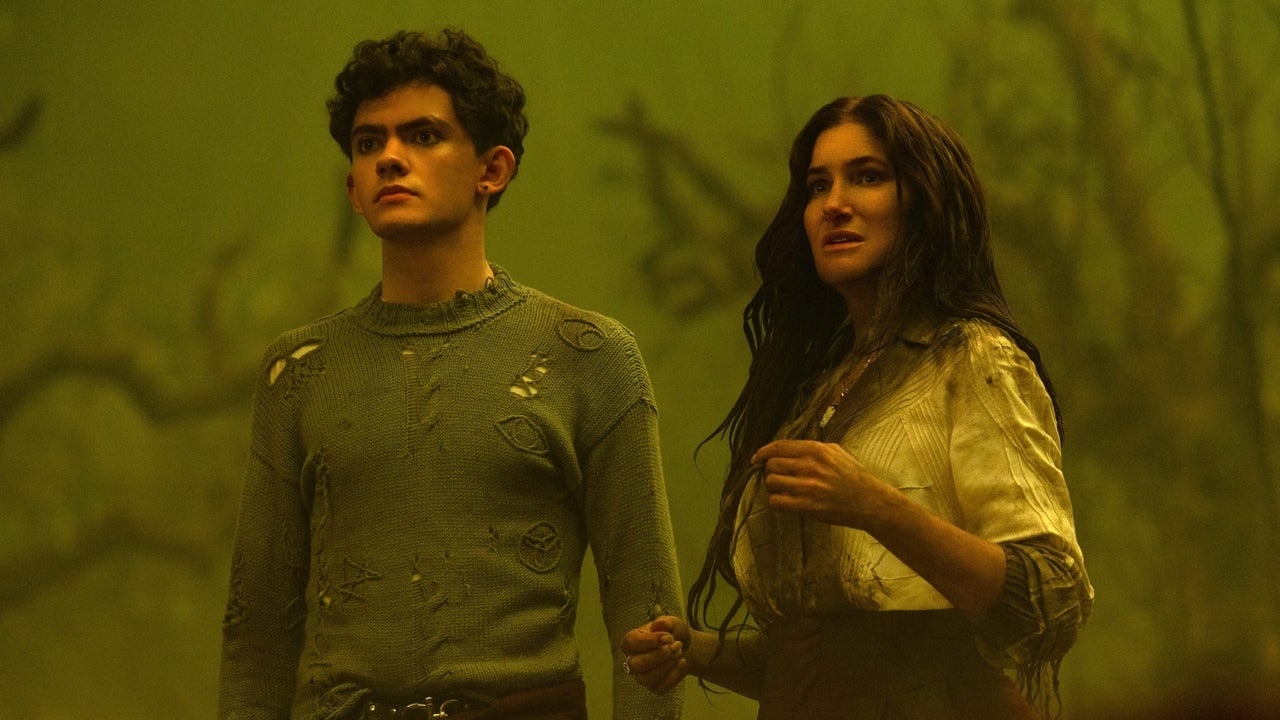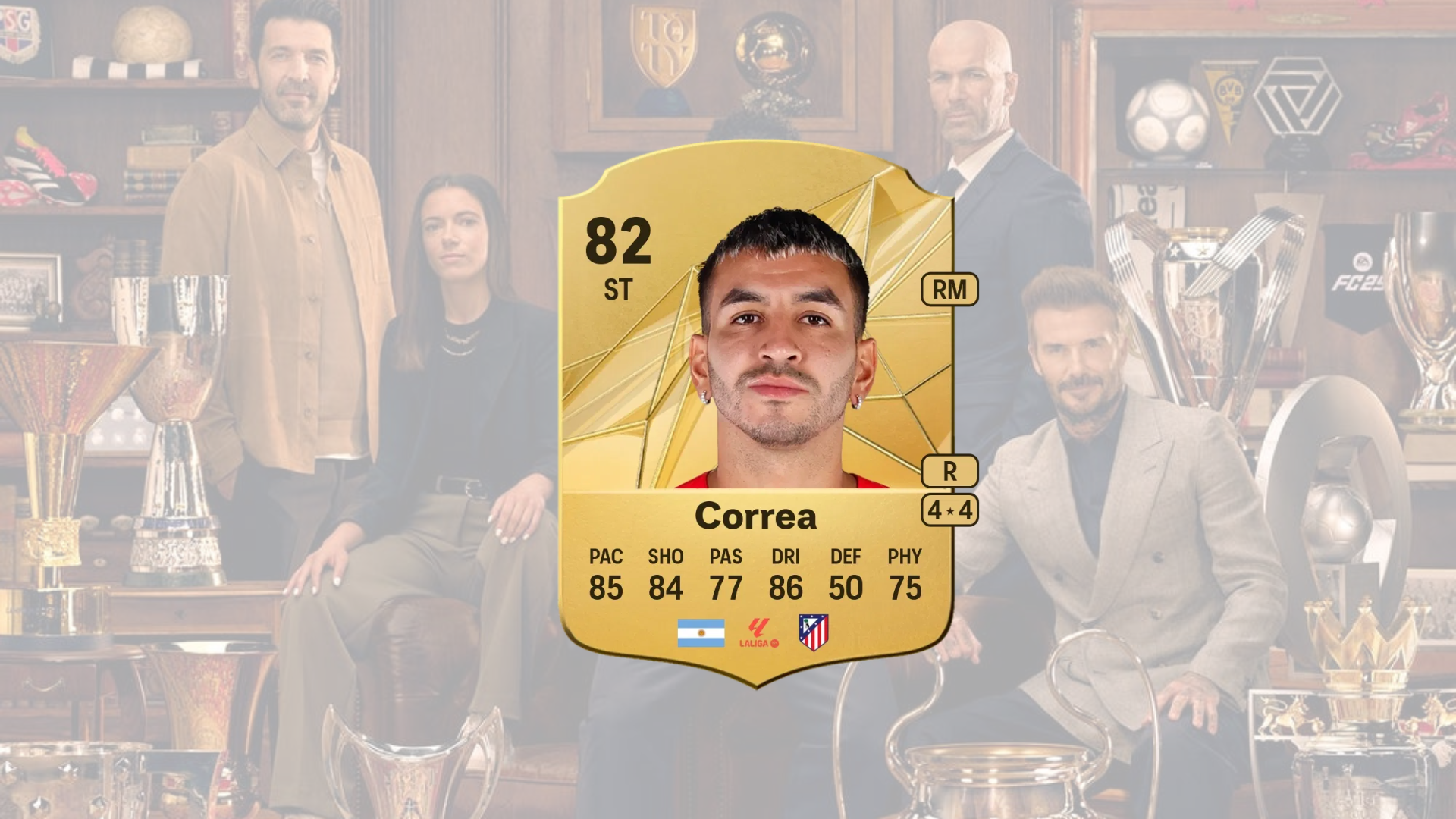I started receiving career advice from my Dominican abuelo at a relatively young age. He'd often say things like, "Do you see presidents or CEOs with tattoos, do-rags, and their ears pierced?" Looking back now, I understand that he was trying to protect me from people's negative perceptions. Indirectly, he was also telling me that if I wanted to find success in my career, I had to mirror the appearance and mannerisms of older white men.
At the time, I wished I had examples of other Latines being themselves and thriving, but I didn't. Instead, I embarked on my assimilation journey, beginning with my appearance. Years of trying to assimilate into white spaces transformed me into a full-time actor. I was essentially catfishing my way through corporate America. Eventually, I burned out, and it was through that process I decided I wanted to become the representation I had always been seeking.
It's been a long journey, to say the least.
Early in my career, I used my managers and colleagues as aspirational mannequins. I would take mental screenshots of how they would dress for work and then hit up department stores, trying to re-create their looks. This led to eventually building a work wardrobe separate from my personal closet. The funny thing about that work wardrobe is that no one told me I needed to buy new clothes or that my shoes were unprofessional. I convinced myself by looking around, reading the room, and comparing myself to my colleagues. It started with appearance but quickly escalated to how I spoke and being selective about the stories I shared.
Every Monday morning, when colleagues asked, "How was your weekend?" I lied and kept it brief and generic: "chillin' with the fam," "caught up on sleep," or "did laundry." In my head, it was unprofessional to tell them the truth. I couldn't tell them things like, "This weekend was popping. I hit up brunch at Dyckman, popped bottles, and smoked hookah while women were shaking ass at a table nearby." I believed no one would take me seriously if I said things like that, yet my colleagues openly talked about using drugs and not showering for days at Burning Man. Why was it OK for them but not for me?
My breaking point was the moment I finally burned out from constantly trying to assimilate.
My breaking point was the moment I finally burned out from constantly trying to assimilate. It happened after yet another exhausting day at Facebook, filled with forced interactions and pretending to be someone I wasn't. I was on the sales team and was constantly "entertaining" clients. This meant that I wasn't just faking it from 9-5, but also from 5-9 after work with dinners, happy hours, and other events.
Even when the whole workday was over, I would dedicate hours or days to studying "white popular American culture." The story I told myself was that talking about Bad Bunny and shows like "Insecure" would not make me relatable at work and would stand in the way of me succeeding or potentially moving up at the company. Instead, I would binge-watch seasons of "Riverdale," thinking that it would help me build relationships with colleagues and senior leaders. It didn't, though. Despite my extreme efforts, I was still being labeled unfriendly, aggressive, and unapproachable.
There's nothing wrong with expanding your preferences, but there comes a point after you try something and realize you don't enjoy it that you have to be honest with yourself. Are your current interests and preferences coming from a genuine place within you? Or are you doing it solely to be accepted by folks who likely wouldn't accept the real you? After just a few months at Facebook, I was completely burned out by my two roles: my actual job and being an in-office actor. I was playing a role that was worthy of an Academy Award. Here I was at my so-called "dream job" and I wasn't thriving at all.
I remember sitting at home one day, feeling completely drained and disillusioned. The weight of hiding my true self had become unbearable, and the anxiety and stress of it all was overwhelming. I realized I couldn't continue living this way. That evening, I cried to my aunt about how burned out I was and made a bold decision to confess my struggles to my team. I scheduled a meeting with them and told them, "For the past year, everything besides my name and the fact that I love brussels sprouts has been a lie. I've been lying to y'all." The room fell silent with shock. My colleagues' facial expressions showed a mix of confusion and curiosity about what version of Pabel they would see moving forward.
The true test of my authenticity came at the next client dinner. When asked about my weekend plans, I decided to be honest. "I've got two dates this weekend with two different women," I said. In my head, I thought they wouldn't take me seriously and would dismiss my recommendations. Instead, my confession was met with intrigue. They asked how I met them and they were curious about Tinder. This candid admission felt risky but it was also a profound release. They saw me for who I truly was, and it was liberating to finally be honest.
This moment of vulnerability marked a turning point in my life. I decided to stop pretending and instead finally embrace my authentic self, which in time improved my mental health and work performance. I went from almost quitting to never receiving a performance review less than exceeding expectations.
That's not to say that embracing your authentic self isn't met with resistance. Surprisingly, much of the pushback I experienced came from people who look like me, still operating under unspoken rules and survival tactics that continue to hold our communities back. Two years ago, when I was working at TikTok, I publicly posted my compensation package on LinkedIn. It was Latina Equal Pay Day, and I couldn't ignore how secrecy impacts wage discrepancies. Imagine the power of going into salary negotiations already knowing a team member's salary. That day, I decided that transparency would be my way of helping to close the gap.
At work, we're often discouraged from sharing the details of our job levels and compensation packages. This secrecy solely benefits companies, allowing them to lowball employees. At home, I was told sharing this information would create jealousy and envy, and that people might try to take advantage of me. Despite these warnings, I was ready for the pocket watchers. If my post could help one person negotiate a better compensation package, it was worth it. Up until that post, only my accountant knew my earnings. I didn't share this information with my family, my girlfriend at the time, or friends.
The post went viral, reaching millions, including my colleagues at TikTok. My family didn't approve, fearing potential retaliation. My colleagues' responses ranged from confusion to concern. Leadership, who preached diversity, equity, and inclusion, made me feel as if I had done something wrong or illegal, offering feedback like, "your job will be more difficult," "I'm worried for you," and "you should have handled this internally."
Faced with this unexpected resistance, I realized that my values no longer aligned with the company's. It didn't make sense to me that salary transparency on such a symbolic day would be met with such resistance. This dissonance ultimately led me to quit my job, deciding to fully commit to my mission of empowering authenticity.
Experiencing burnout and deciding to embrace my authentic self led me to start the "¿Quién Tú Eres?" podcast. Each episode features a different guest who shares their experience navigating conflicts between authenticity and workplace expectations around professionalism. These are unique conversations because most workplace experiences for BIPOC communities are not shared publicly. I dare you to look up any research study around the workplace experience for Black and Latine employees. It's full of anonymous quotes. We are scared to talk about our own experiences. This podcast allowed me exclusive access to better understand these experiences.
After over 200 episodes, here's the biggest insight: no one does their best work until they stop faking it, code-switching, and assimilating. It's a simple math equation. If you have 100 percent of your time and you're dedicating 50 percent of it to being a professional workplace actor, how do you ever expect to do your best work? Not even Denzel acts that much. Not being yourself harms the individual because you will experience burnout, decreased productivity, and mental health crises.
To avoid this, companies would hire me to help their employees understand why it's necessary for them to finally embrace their most authentic selves. In the past two years, I've worked with more than 30 organizations including Google, Spotify, Salesforce, Snap, Northwestern Mutual, GroupM, Publicis Groupe, and Boston University. Like on the podcast, I would hear the same stories from those in the audience of my keynotes. They all had the necessary skills and experience for the roles, but it was the stories that their inner voices were creating that hindered their future growth. I realized that many people needed more than just a platform to share their experiences, they needed practical tools to overcome psychological barriers such as limiting beliefs and imposter syndrome.
This inspired me to create the Plurawl app, which officially launched on June 19, 2024. Plurawl, the first AI-powered mental health app geared toward the Black and Latine community, was designed to provide users with better insights into their emotions and limiting beliefs. By journaling directly into the app, users receive immediate feedback, helping them understand and challenge their thought patterns. The app's AI chat function offers real-time conversations. Users have described the experience as feeling like they are messaging with an actual therapist.
Today, I am proud of the impact Plurawl has had on the community after being released only two months ago. It not only helps individuals understand themselves better, it also fosters a sense of community. I continue to refine and expand the app, adding features like gamification to encourage regular check-ins and promote mental well-being. Ultimately, I want people to take away from my story the importance of embracing their authentic selves and the understanding that true success comes from being genuine — not from conforming to others' expectations. Life is short. Start figuring out who you actually want to be.
Pabel Martinez is the founder and CEO of Plurawl, an AI-powered self-discovery coach that helps people overcome psychological barriers and limiting beliefs. With extensive experience in technology, Pabel specializes in building innovative products that support employee well-being and personal/professional growth. Pabel's work, including his viral podcast, "¿Quién Tú Eres?," has been featured by The Wall Street Journal, Ad Age, Business Insider, Vox, and more.

 2 days ago
3
2 days ago
3




/cdn.vox-cdn.com/uploads/chorus_asset/file/25242409/20230608_Palworld_Screenshot_02.png)



 English (US) ·
English (US) ·